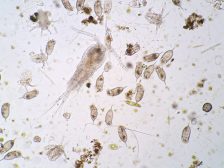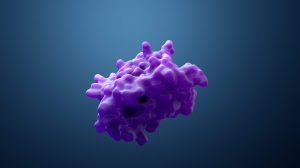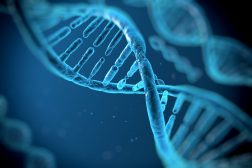Atomic mass
(Science: chemistry, physics) The mass of an atom relative to other atoms.
The present-day basis of the scale of atomic weights is carbon, the most common isotope of this element has arbitrarily been assigned an atomic weight of 12.
The unit of the scale is 1/12 the weight of the carbon atom or roughly the mass of one proton or one neutron. The atomic weight of any element is approximately equal to the total number of protons and neutrons in is nucleus
Dictionary > Atomic mass
You will also like...

Freshwater Communities & Plankton
Planktons are microscopic organisms that live suspended in aquatic habitats. There are two groups: the phytoplanktons an..

New Zealand’s Unique Flora
If New Zealand has lots of unique animals, it's also got a whole lot of unique plants. Find out more about some of them,..

Protein Variety
The sequence of amino acids determines the type of protein. Protein is synthesized according to the sequence of nucleoti..

Chromosome Mutations
Mutations can also influence the phenotype of an organism. This tutorial looks at the effects of chromosomal mutations, ..

Ecological Research: Measuring & Analysis
This lesson is about the methods used for ecological research, such as quadrat and transect sampling, canopy fogging, an..

Genetic Control – On and Off Genes
Genes are the blueprint of our bodies, a blueprint that creates a variety of proteins essential to any organism's surviv..

